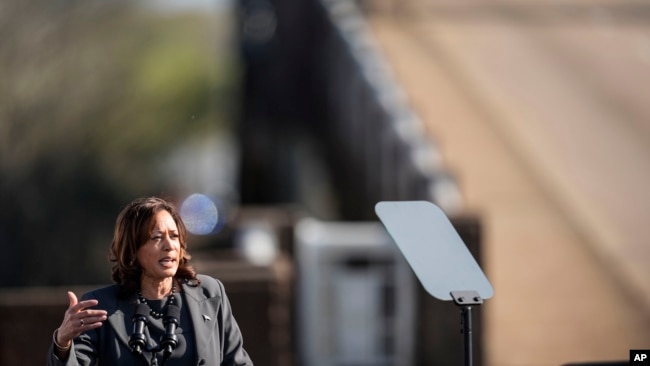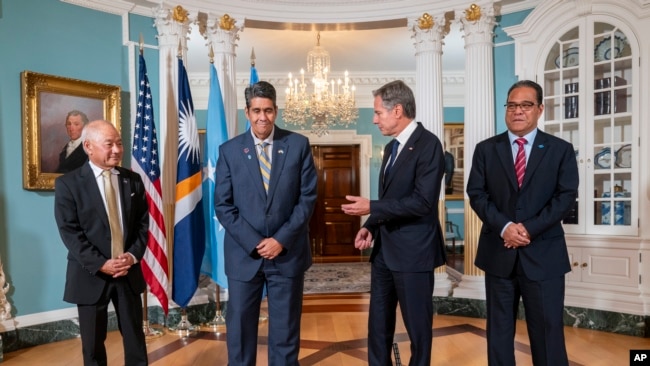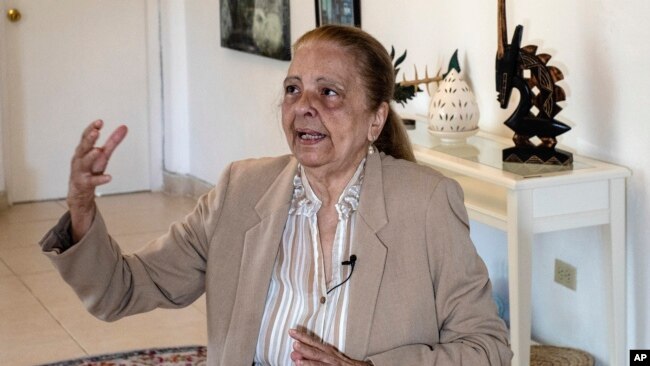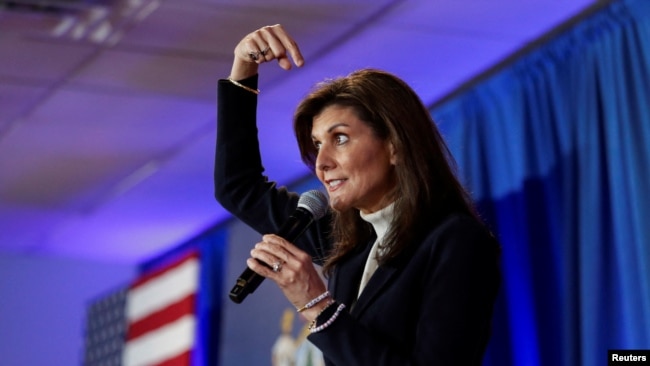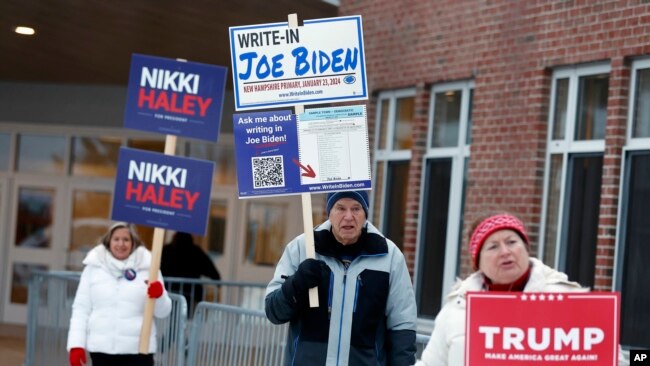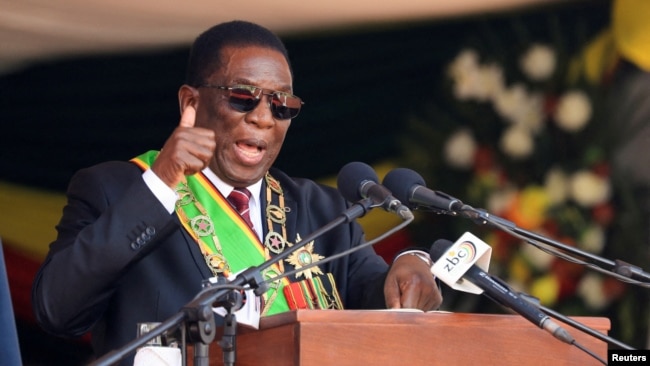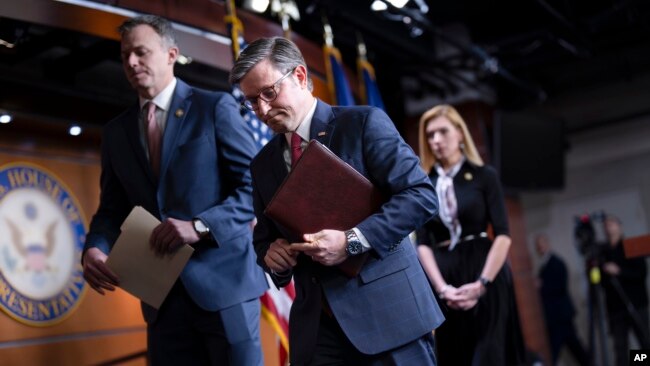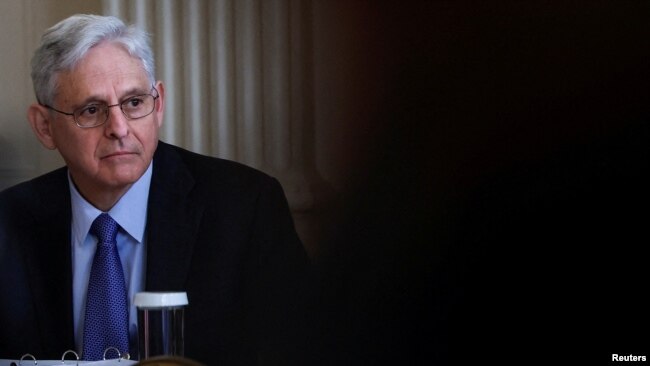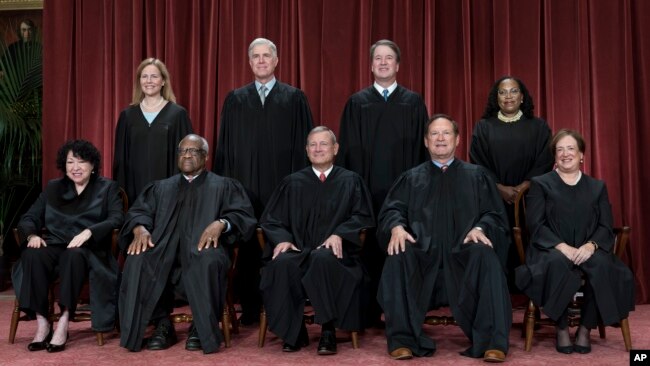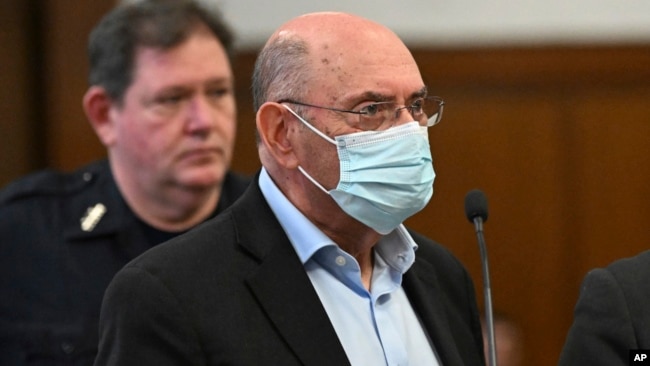“북한 식량 유통 통제 강화 공급 물량 부족으로 효과 없어…주민 애국심 호소는 위기감의 반영”
Strengthening North Korea's Food Distribution Control is ineffective due to a lack of supplies...Residents' patriotism appeal reflects a sense of crisis"
페이지 정보
작성자 김환용 작성일 23-01-06 16:30 댓글 0본문
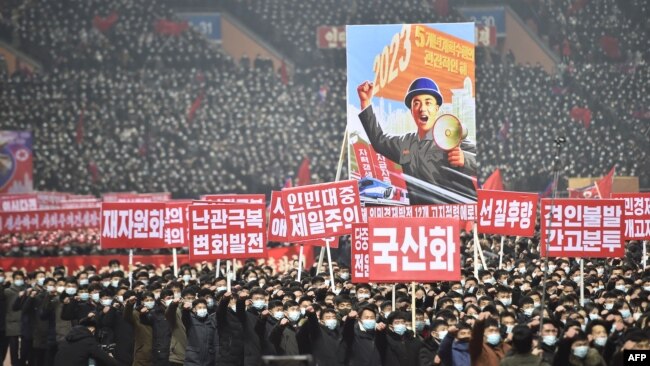
5일 북한 평양 5월1일경기장에서 노동당 중앙위원회 전원회의 결정을 관철하기 위한 궐기대회가 열렸다.
On May 5, a rally was held at the May 1 Stadium in Pyongyang, North Korea to carry out the decision of the Central Committee of the Workers' Party.
심각한 식량난에 처한 북한 당국이 곡물 유통에 대한 중앙 통제를 강화하고 있지만 물량 부족이라는 근본적인 문제에 부딪치면서 어려움이 심화되고 있는 것으로 전해졌습니다. 북한 당국은 1940년대 애국심 고취 운동까지 소환해 곡물 확보에 나서고 있어 위기감을 드러내고 있다는 관측이 나옵니다. 서울에서 김환용 기자가 보도합니다.
North Korean authorities, which are in serious food shortages, are tightening central control over grain distribution, but the difficulties are reportedly deepening as they face the fundamental problem of a shortage of supplies. It is observed that the North Korean authorities are showing a sense of crisis as they even summoned a campaign to promote patriotism in the 1940s to secure grain. Reporter Kim Hwan-yong reports from Seoul.
탈북민 출신의 조충희 굿파머스 연구소장은 6일 ‘VOA’와의 전화통화에서 지난달 북한 평안남도 일부 지역 국영 양곡판매소들이 쌀과 옥수수를 시장 가격보다 훨씬 싼 kg당 4천원과 6천원에 주민들에게 공급했다고 전했습니다.
Cho Chung-hee, a former North Korean defector and head of the Good Farmers Institute, said in a telephone interview with VOA on the 6th that state-run grain stores in some parts of North Korea's Pyongannam Province supplied rice and corn for 4,000 won and 6,000 won per kilogram, much cheaper than the market price.
일본의 북한전문 매체 ‘아시아 프레스’에 따르면 지난달 29일 현재 쌀은 kg당 5천900원, 옥수수는 2천700원 수준이라는 점을 감안하면 약 30% 가량 저렴한 가격입니다.
According to Japan's North Korean media Asia Press, the price is about 30% cheaper considering that rice is 5,900 won per kilogram and corn is 2,700 won as of the 29th of last month.
조 소장은 그러나 물량 부족으로 세대 당 5일치 식량만 공급이 이뤄졌고 그나마 모든 세대에게 돌아가지 못하는 실정이라고 말했습니다.
Director Cho, however, said that due to a lack of supplies, only five days' worth of food was supplied to each household, and that it was not possible to return to all households.
[녹취: 조충희 소장] “원래 제대로 되려면 12월 한 달 것을 줘야 하거든요. 그런데 물량이 확보되지 않아서 한 세대 당 5일분씩 준다고 했고요, 그게 떨어지니까 내년 1월 달에 가서 주겠다 이렇게 이야기를 했지만 주민들은 신뢰하지 않고 있다, 지금 없는 게 1월 달에 어디서 생기느냐 이야기가 나오는 거죠.”
[Recording: Director Cho Choonghee] "To do it properly, you have to give it to them for December." However, they said they would give five days to each household because the supply was not secured, and they said they would give it to them in January next year because it fell, but the residents do not trust it, and they are talking about where they don't have it in January."
북한 당국의 이 같은 조치는 아직 보릿고개도 아닌 연초에 여전히 고공행진 중인 곡물 가격을 안정시키기 위한 고육책으로 보이지만 식량 생산 부진과 국제사회 대북 제재, 신종 코로나바이러스 감염증 사태에 따른 중국과의 교역 위축 등이 중첩되면서 확보된 식량이 수요에 턱없이 부족한 때문으로 분석됩니다.
The North Korean government's move seems to be a desperate measure to stabilize high grain prices at the beginning of the year, but it is analyzed that the food secured is far short of demand due to sluggish food production, international sanctions, and weak trade with China.
조 소장은 양곡판매소에서 싼 값에 물량이 풀렸지만 평안남도 지역 장마당 곡물 가격 인하 효과는 미미하다고 말했습니다.
Director Cho said that although the volume was released at a low price at the grain store, the effect of lowering the grain price in Jangmadang in Pyeongannam-do was insignificant.
한국 농촌진흥청은 지난해 북한의 식량 수확량이 451만t으로, 전년 대비 18만t 감소한 것으로 추정했습니다.
South Korea's Rural Development Administration estimated that North Korea's food harvest last year was 4.51 million tons, down 180,000 tons from the previous year.
한국 정부 관계자는 북한의 식량난을 고려하면 예년 수준의 곡물을 수입하더라도 북한의 지난해 식량 부족분이 80여만t에 달할 것이라며 “함경북도 지역에서 식량 부족으로 다수의 아사자가 발생했다”고 밝힌 바 있습니다.
Considering North Korea's food shortage, North Korea's food shortage last year would reach 800,000 tons, a South Korean government official said. "There have been many starvation due to food shortages in North Hamgyong Province."
중국 해관총서 자료에 따르면 북한은 지난해 11월 중국으로부터 쌀 3만여t을 수입하면서 월간 쌀 수입량으로는 2019년 9월 이후 최대치를 들여왔지만 부족분을 채우기엔 턱없이 적은 규모입니다.
According to data from the China Customs Service, North Korea imported 30,000 tons of rice from China in November last year, the largest monthly rice import since September 2019, but it is far too small to fill the shortage.
북한은 지난해 9월 노동당 정치국 회의에서 곡물 수매와 양곡 유통 비리 척결 방안을 논의한 데 이어 12월엔 최고인민회의 상임위원회 상무회의를 열어 농장법 등 곡물 생산과 유통과 관련한 법령을 개정했습니다.
After discussing ways to fight corruption in grain purchases and grain distribution at a meeting of the ruling Workers' Party's Politburo in September last year, North Korea held a standing meeting of the Supreme People's Assembly in December to revise laws related to grain production and distribution.
당국 차원의 보다 많은 곡물 확보와 유통 개선을 위한 중앙 통제 강화 조치였습니다.
It was a measure to strengthen central control to secure more grains and improve distribution at the authorities level.
이런 가운데 북한 당국은 해방 직후의 애국심 고취 운동까지 소환하며 식량 확보에 나서고 있습니다.
In the meantime, North Korean authorities are even summoning a movement to promote patriotism right after liberation to secure food.
노동당 기관지 ‘노동신문’은 지난 4일 일제에서 해방된 이듬해인 1946년 12월 한 농민이 나라에 곡식을 바친 것을 계기로 벌어진 ‘애국미 헌납 운동’ 등을 부각하는 기사를 실었습니다.
The Labor Newspaper, an organization of the Labor Party, published an article highlighting the Patriotic America Tribute Movement, which took place in December 1946, a year after Japan's liberation from Japan on the 4th.
북한이 이처럼 70년도 더 된 과거의 시대정신까지 소환한 것은 식량 문제를 비롯한 경제 위기를 풀 해법이 내부적 정신무장 외에 달리 없다는 방증이라는 분석이 나옵니다.
Analysts say that North Korea's summoning of the spirit of the times more than 70 years ago proves that the only solution to the economic crisis, including the food problem, is internal mental armament.
핵 무력 강화 노선으로 국제사회의 제재 해제를 기대할 수 없고 신종 코로나 사태에 대해서도 백신 공급 등 외부 지원을 거부하고 있기 때문입니다.
This is because the international community cannot expect the lifting of sanctions due to the strengthening of nuclear force, and they are refusing external support such as vaccine supply for the COVID-19 crisis.
탈북민 출신의 북한 경제 전문가인 김영희 남북하나재단 대외협력부장은 북한 당국이 현 시점에서 애국미 헌납운동을 새삼 꺼낸 것은 여력이 있든 없든 모든 주민들의 애국심에 호소해 최대한 식량을 확보하려는 의도라고 설명했습니다.
Kim Young-hee, a North Korean economic expert and former North Korean defector, said the North Korean authorities are trying to secure food by appealing to the patriotism of all residents, whether they can afford it or not.
[녹취: 김영희 부장] “지금 그만큼 북한이 식량 사정이 녹록치 않다는 거에요. 90년 상황은 아니지만 그래도 지금 김정은 집권 이후에 대북 제재와 코로나 상황 때문에 그 때보다 그렇게 좋아지진 않고 나빠질 확률이 높다고 보는 것이죠.”
[Recording: Director Kim Young-hee] "The food situation in North Korea is not as good as it is now." It's not a 90 year situation, but I think there's a high possibility that it will not get so good and get worse than then due to sanctions against North Korea and the COVID-19 situation after Kim Jong-un took office."
조충희 소장은 밀과 보리, 감자가 수확되는 오는 6월까지 북한이 어떻게 버티느냐가 문제라고 말했습니다.
Director Cho Chung-hee said the question is how North Korea will hold out until June when wheat, barley and potatoes are harvested.
결국 외부로부터의 지원 또는 수입 말고는 방법이 없다는 겁니다.
After all, there is no other way but to support or import from outside.
전문가들은 북한이 수출과 관광, 노동자 해외 파견 등 외화벌이 수단들이 수년째 크게 위축됐기 때문에 곡물 수입에 필요한 당국의 외화 보유고가 소진됐을 수 있다고 말합니다.
Experts say the authorities' foreign currency reserves needed to import grain may have been exhausted as North Korea's foreign currency-making means, including exports, tourism and sending workers overseas, have shrunk for years.
조한범 박사입니다.
I'm Dr. Cho Han-beom.
[녹취: 조한범 박사] “그동안 대북 제재 상황에서 계속 무역적자가 누적돼 왔거든요. 그럼 대규모 수입을 할 수 있는 여력이 있는지도 의문이거든요. 지금 상황에서 본다면 퇴행적인 농업정책으로 가는데 올해도 기상 여건과 관계없이 상황은 비관적이라고 볼 수 있죠.”
[Recording: Dr. Cho Han-beom] "The trade deficit has been accumulating in the situation of sanctions against North Korea. Then I wonder if I can afford to make large-scale imports. In the current situation, we are going to go with a regressive agricultural policy, and this year, regardless of weather conditions, the situation is pessimistic."
이효정 한국 통일부 부대변인은 6일 정례브리핑에서 북한의 올해 경제에 대해 “경제발전 5개년 계획의 3년차가 되는 올해에도 여전히 경제성장과 민생 개선을 크게 기대하긴 어려울 것”으로 전망했습니다.
Lee Hyo-jung, deputy spokesman for South Korea's Unification Ministry, predicted at a regular briefing on the 6th that North Korea's economy will still be difficult to expect significant economic growth and improvement in people's livelihoods this year, the third year of the five-year economic development plan.
서울에서 VOA뉴스 김환용입니다.
I'm Kim Hwan-yong from VOA News in Seoul.
출처 : VOA한국
댓글목록 0
등록된 댓글이 없습니다.


